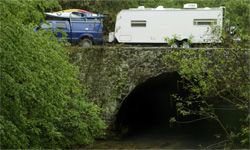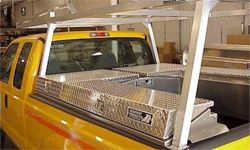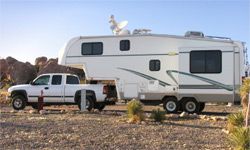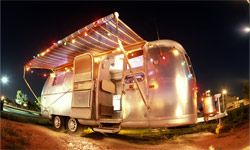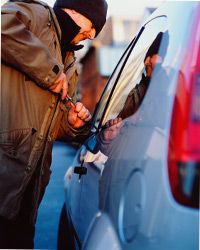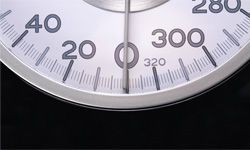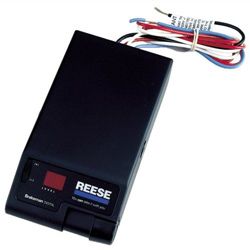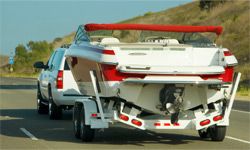Often, you need to lug more cargo than your vehicle was designed to carry. If you frequently find yourself in this fix, you might consider towing a trailer such as a camper or a smaller device, say, for hauling your motorcycle. Whatever you tow, your vehicle must be rated for the proper weight or class of trailer and have a towing hitch assembly, along with several accessories.
First, let's look at how trailers and tow vehicles are connected. The connection is called the hitch, and it's mounted to the vehicle's chassis. Permanent hitches have a fixed ball mount, while temporary hitches have a removable one. The ball mount allows the trailer to swivel and turn with the tow vehicle. The ball mount lock keeps a temporary ball mount in place within the hitch.
Advertisement
The tongue fits over the hitch's ball mount and shoulders the force exerted by the trailer (the tongue weight). The trailer coupler and tongue lock secure the trailer's tongue to the ball mount. Safety chains attach the trailer to the tow vehicle and provide a backup attachment if the trailer hitch should fail. The wiring harness connects the electrical wiring of the trailer to that of the tow vehicle.
Beyond these basics, most towing accessories that you may need will fall into these categories:
- Tools and loading ramps for installing and connecting the trailer
- Straps, bungee cords, chains and antitheft devices for securing the trailer and its contents
- Alarms and cameras for warning drivers of theft or obstacles
- Mirrors, brakes and antisway devices for safely operating the trailer
Let's get started.
